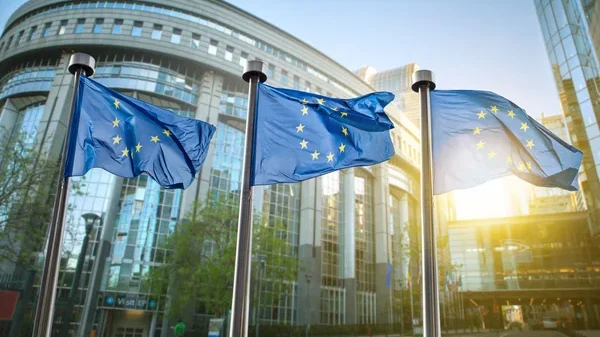Staff writer Mehmet Temur delves into the outcomes and some implications of the Polish elections.
War and atrocities in the Middle East. The rise of populism and the far-right in the US and the EU. Escalation of the violence in Ukraine. Erosion of the net-zero consensus. With these bleak developments occurring all around the world, it is hard to look at the future with optimism. However, if you are looking for some good news, look no further than Poland.
In the recent Polish Parliamentary Elections, the world watched with bated breath as the opposition claimed victory, led by the former President of the European Council, Donald Tusk, who had returned to his homeland with a mission to end the eight-year reign of the right-wing populist Law and Justice Party. The significance of this election goes beyond just the change of political power, it symbolises the battle to dismantle an illiberal regime that has systematically attacked democratic institutions and practices in Poland.
A Democratic Coup
When the Law and Justice Party clinched power in 2015 with nearly 38% of the vote, they initiated what can only be described as a constitutional coup against Poland’s liberal-democratic order. Their actions involved politicising, and at times, eroding democratic institutions enshrined in the country’s constitution. This included the institutions designed to protect minority rights, such as the Constitutional Court, independent courts, public television, and the prosecutor’s office, whose independence was damaged. The majority became the sole holder of power, constantly trying to further attack Poland’s democratic foundations.
Solidarity Resurfaces
Even before the election, you could hear the winds of change. The opposition’s march on 1st of October on the streets of Warsaw was nothing short of a resounding success. Though the exact number of participants might be debated, it is undeniable that the atmosphere was charged with anticipation. Donald Tusk, the political heavyweight leading the opposition, had called for this march months in advance. As he stood before the jubilant crowd on that Sunday, he evoked the spirit of Solidarność (Solidarity) – the historic free trade union that played a pivotal role in toppling communism. Tusk framed the parliamentary election on the 15th of October, 2023, as a potential turning point in Polish democracy, similar to Solidarność’s struggle for freedom in the 1980s.
And the results (based on the exit polls) speaks for themselves. Despite the incumbent Law and Justice Party coming first with 36%, they lack seats to form a majority, even with the other right-wing parties. On the other hand, Tusk’s party, ‘Civic Coalition’, won 31% and has a clear path to majority with ‘The Left’ and ‘Third Party’. Moreover, the referendum questions, which were largely based on the Law and Justice government policies and were questionably worded to make it impossible to vote no, were all invalidated due to the low turnout of 40%, less than the 50% required. This is ironic, considering the fact that the turnout for the parliamentary elections was record high at 72.9%, the highest in Poland’s history.
The Steep Climb Ahead
Tusk’s return to Poland and the subsequent election victory have rallied hopes for change, but the path ahead is full of challenges. The divisions within Polish society remain deeply entrenched and the populist Law and Justice Party still has a solid base of support. While Tusk is a formidable leader with an unwavering position in the party, he also faces considerable opposition. Many voters strongly dislike him, making his task of securing a majority rather complex. The need for alliances and cooperation with smaller partners, and even potentially (although unlikely) with the far-right Confederation party, underscores the challenging road ahead.
How to Dismantle an Illiberal System
If the Polish opposition manages to form a coalition, they will face the unprecedented challenge of dismantling an illiberal system that came about through democratic processes over the last eight years. European history offers examples of political transformations towards democracy, but dismantling an unfree system that hides itself as democratic governance presents unique challenges. The Polish opposition’s efforts to restore the rule of law and democratic norms may be further complicated by the lack of independent institutions capable of overseeing political actions. The question of how to rebuild democratic principles without violating them looms large.
The EU’s Watchful Eye
The outcome of this political battle holds significant implications for not only Poland but also the broader European landscape. The European Union closely monitors these developments, with hopes that a change in power will result in a return to the spirit of cooperation and democratic values championed by Donald Tusk during his tenure. The EU may take swift action, including releasing funds from the pandemic recovery fund, to encourage Poland’s alignment with its core values.
A Potential Shift in Alliances
With the potential change in power in Poland, Italian right-wing leader Giorgia Meloni finds herself in a challenging situation. The Law and Justice Party, a populist ally of hers, is now in the process of losing its hold on Poland’s political landscape.
Meloni aspires to gain more influence in the EU governance after the 2024 European elections. A stronger presence in the European Parliament and increased sway within the European Commission would empower her to more effectively pursue her priorities, which include EU economic governance, the pace of the green transition, and managing migration. As such, there is an argument to make that with the one of her staunchest populist allies gone, she might be open to cooperating or even forming an alliance with the centre-right EPP. Her dilemma is, should she prioritise gaining international influence by moving closer to the EPP, which may lead to domestic support losses, or should she maintain her position within the conservative ECR? The choices she makes will not only influence Italy’s role in the EU but also the broader dynamics of right-wing politics within the union.
Isolation of Hungary
Poland’s potential return to democracy following the election signifies the breaking of the populist alliance between Poland and Hungary. This development opens the door for the European Union to wield a more powerful weapon: the suspension of certain EU rights, including voting rights, in response to serious breaches of core values.
The EU’s ability to suspend some of a member state’s rights for core value breaches represents a more assertive approach to enforcing democratic norms. Proceedings to suspend the rights of Poland and Hungary have been in progress for years but have not yet come to a vote in the Council. The voting rules to impose suspension have revealed the challenges of this exercise, necessitating unanimous support from all member states except the one facing suspension.source Poland and Hungary were expected to support each other in such situation, making the vote impassable. With the Polish liberal opposition winning the election, Poland is likely to no longer abide by this arrangement, opening the door for a stronger response against Hungary.
High Hopes with Caution
In conclusion, the recent Polish Parliamentary Elections are not just a domestic political event; they have far-reaching implications for the European Union’s political landscape, alliances, and its ability to uphold core democratic values in its member states. The world will continue to watch closely as these events unfold, influencing the direction of not only Poland but the broader European political future. The challenges are formidable, but the determination to restore democratic principles should remain unwavering.

















